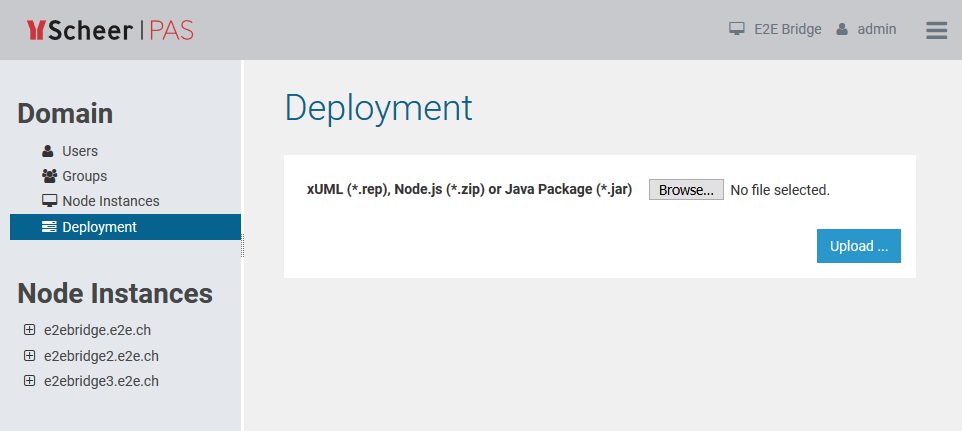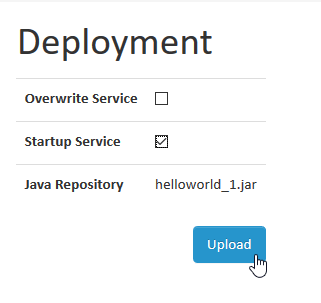You can directly deploy the repository of a Java service to a node instance via the Bridge.
Deploying a Java Service Repository via the Bridge
Only users who are member of a group, to which the role ADMIN or MODELER has been assigned, are allowed to deploy Java services. Users, who have only MODELER access rights, may only replace a Java service, if they themselves or a member of the same group deployed it.
Select the navigation item Deployment in the Domain section of the navigation on the left to deploy a new service or overwrite an existing one.

Browse for the repository of a Java service by clicking Browse. This repository has to be provided as a JAR file and it's structure is explained further below.
Click Select ... to proceed setting the deployment options.

| Option | Description |
|---|
| Overwrite Service | If the Java service you want to deploy already exists, check this option, if you want to overwrite it. |
| Startup Service | To run, the Node.js service has to be started. Select this option, if you want the Node.js service to be started automatically right after its deployment. |
After you have set the deployment options, deploy the service by clicking Upload.
If you have deployed a new service, it will be displayed in the navigation, below the node instance to which it has been deployed.
Target Directory of the Deployment
Java services get deployed to a folder java_<name of the service> in the Bridge data directory of the node instance. This folder contains the service repository (repository.jar) and a sub-folder logs to store the logs in.
Java Preferences of the Service
The Java preferences of the Java services (Java version used to run the service) is supplied via the preferences section of the xUML services as described in Preferences of the xUML Services.